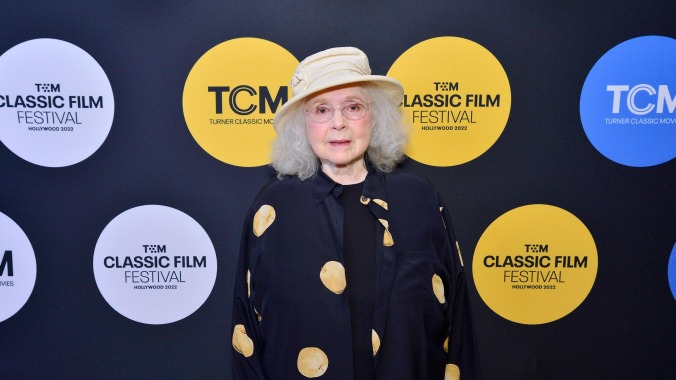R.I.P. Carrie and Twin Peaks star Piper Laurie
Laurie's 60-year career stretched from the days of 1950s Hollywood to the heights of genre film and TV

Piper Laurie has died. A veteran actor of stage, screen, and TV, Laurie is probably best remembered for her performance in Brian De Palma’s horror hit Carrie, playing all-time awful cinematic mother Margaret White. (She of “They’re all gonna laugh at you!” fame.) Although her relationship with Hollywood went through periodic phases—she vacated a Universal contract in the 1950s, dissatisfied with the too-light parts on offer, and went more than 15 years without a film role between 1961's The Hustler and 1976's Carrie—she was also famous for the power of her performances. (It’s not for nothing that both of the aforementioned films snagged her two of her three career Oscar nominations.) Comfortable on screens both small and large, Laurie also had an eye-catching starring role in David Lynch’s Twin Peaks, and was a staple of American television and film throughout the second half of the 20th century. Per THR, her death was confirmed today by her rep, Marion Rosenberg, after not being well “for some time.” Laurie was 91.
Born in Michigan in the 1930s, Laurie entered the Hollywood system early, signing her contract with Universal when she was still just 17. She had her breakout role the following year with 1950's Louisa, in which Ronald Reagan starred as her father; the pair were later at least briefly romantically linked—with Laurie writing in her 2011 autobiography that she lost her virginity to the future president, who was 20 years her senior. Spending five years stuck in roles as standard young ingenue types (which saw her paired up with Rock Hudson, Tony Curtis, and other major stars of the era), Laurie eventually grew dissatisfied. Escaping her contract, she moved to New York, where she immersed herself in the city’s theater scene, and to TV, where programs like Playhouse 90 brought works like Days Of Wine And Roses to the masses. (Laurie originated the role of Days’ Kirsten for John Frankenheimer in 1958; Lee Remick played the part in the film.)
In 1961, Laurie returned to Hollywood to star opposite Paul Newman in The Hustler, scoring the Oscar nomination for Best Actress in the process. While promoting the film, she met New York film critic Joe Morgenstern; the pair married the following year, with Laurie stepping away from acting (give or take a few small TV roles) for the next decade-plus to focus on sculpting, and the raising of the pair’s daughter, Anne. She returned in 1976, when De Palma—still just an up-and-comer nursing a Hitchcock obsession—was told she’d been interested in getting back to work, and might be up for the part of religious zealot Margaret White in his adaptation of Stephen King’s Carrie. In an interview with Cinefantastique Magazine, De Palma recalled meeting her for the first time, saying, “she came in looking like Margaret White with this red hair and black outfit and I said ‘My God! This is it!’”
Laurie’s performance in Carrie is the rare dramatic turn that can be said to fully upstage both exploding proms and buckets of pig’s blood; the result, while undeniably over-the-top at some points, is also riveting, ugly, and impossible to look away from. Hollywood clearly agreed, rewarding Laurie with not just another Oscar nomination, but also a revitalized career; she would work steadily, bordering on relentlessly, for the next 30 years, appearing in everything from The Twilight Zone and The Faculty to E.R. and Touched By An Angel. Notably, that included a starring role in Twin Peaks, where she played tough-as-nails businesswoman Catherine Martell. When the character was supposedly killed off during the show’s first season, Lynch invited Laurie to return in disguise as a Japanese man, both in and out of fiction, for its second; she spent a long period on the show’s set as “Fumio Yamaguchi,” with the rest of the cast told not to get too close to the “visiting actor” so as not to spoil the ruse.
Laurie continued to work for the next several decades, scoring her third Oscar nomination for Children Of A Lesser God in 1986, and racking up Emmy nods in abundance. (In both drama and comedy: The Thorn Birds, St. Elsewhere, Twin Peaks, and Frasier all scored her nods.) Her final on-screen role was in 2018, where she played the grandmother of the main character in Yann Demange’s White Boy Rick.